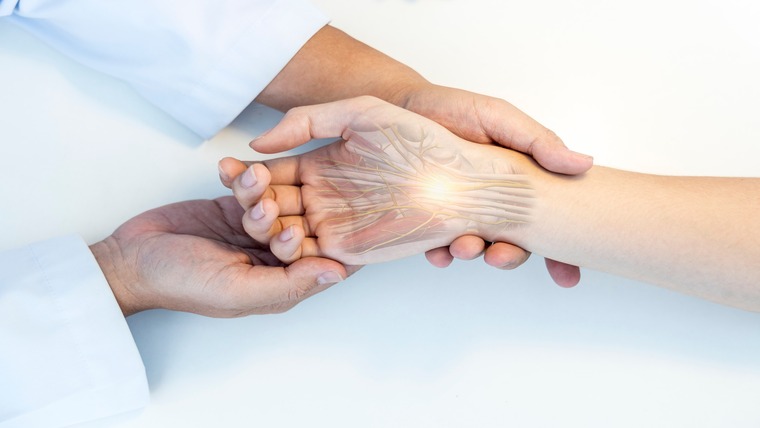
What is the Department of Hand Surgery and What Diseases Does It Cover?
Hand Surgery is a specialized subspecialty of upper extremity surgery that deals with the treatment of complex anatomical structures involving the hand, wrist, and forearm. This department specializes in the diagnosis and treatment of trauma, degenerative diseases, congenital anomalies, and other hand problems.
This field is a multidisciplinary branch of medicine that is critical to upper extremity health. Consulting a hand surgeon at the right time is vital to preserving or restoring hand health and function.
About the Department of Hand Surgery
The Department of Hand Surgery adopts a multidisciplinary approach to the complex structure of the upper extremities. This department is considered a combination of orthopedics, plastic surgery and general surgery and frequently uses microsurgical techniques.
The Hand Surgery department performs delicate procedures such as nerve, tendon and vascular repairs using microsurgical techniques.
Who is a Hand Surgery Specialist and What Are Their Duties?
A hand surgeon is a physician who has received special training in hand and upper extremity surgery. These specialists usually receive training in hand surgery after completing their residencies in orthopedics, plastic surgery, or general surgery.
The duties of a Hand Surgery specialist include:- Diagnosis: Making the correct diagnosis with advanced imaging techniques and clinical examination.
- Surgical and non-surgical treatment: Determining the appropriate treatment method according to the type and severity of the disease.
- Rehabilitation: Managing the post-surgical recovery process and increasing the patient's functional capacity.
What are the diseases treated in hand surgery?
Main diseases treated by the Hand Surgery Department and their brief explanations:
- Carpal Tunnel Syndrome: A condition that occurs as a result of compression of the median nerve in the wrist, causing numbness and pain in the hand.
- Trigger Finger: A condition in which the finger gets stuck and painfully opens due to thickening of the sheath of the finger tendons.
- Dupuytren's Contracture: A genetic disease that causes the fingers to remain bent as a result of thickening and shrinkage of the subcutaneous tissue in the palm.
- Rheumatoid Arthritis: A chronic autoimmune disease that causes inflammation, pain and deformity in the hand joints.
- Tendon Injuries: Injuries that occur as a result of rupture or damage to the muscle fibers that move the hand, causing limited movement.
What Are Hand Surgery Examinations?
Hand surgery examinations involve a comprehensive evaluation process.
These examinations include:- Physical Examination: Visual inspection of the hand, range of motion tests, and special clinical tests.
- Imaging Studies: Advanced imaging techniques such as X-ray, MRI, CT, and ultrasound.
- Electrodiagnostic Tests: Such as EMG and nerve conduction studies.
What is Done During a Hand Surgery Examination?
A hand surgery examination is a comprehensive evaluation process to diagnose problems in the hand and wrist area and create an appropriate treatment plan. During this examination, the specialist physician first takes a detailed medical history of the patient, learns about previous injuries, current complaints, and family history. Then, performs a physical examination of the hand; during this stage, he checks for visible signs such as swelling, discoloration, and deformation. As an important part of the examination, he evaluates the range of motion and strength of the hand. This is critical to understanding how effectively the patient can use his hand. The physician may also perform special clinical tests such as the Tinel test or the Phalen test to detect specific disorders. If deemed necessary, the physician may refer the patient for advanced examinations such as X-rays, MRI, or nerve conduction studies for a more definitive diagnosis. This comprehensive approach is vital in creating an accurate diagnosis and an effective treatment plan.
When Should You Go to the Hand Surgery Department?
Applying to the hand surgery department is an important step for various hand problems and disorders. There is a wide range of situations where applying to this department is necessary. First of all, emergency intervention may be required in case of traumatic hand injuries; these injuries include fractures, dislocations, tendon and nerve damage. Patients experiencing chronic hand pain or loss of function also need expert opinion. Structural problems such as hand deformities or tumors also require evaluation by a hand surgery specialist. Progressive neurological symptoms such as numbness and tingling may be a sign of serious problems and should definitely be investigated. Finally, applying to the hand surgery department is also important for evaluating further treatment options for hand disorders that do not respond to conservative treatment methods. In these cases, early intervention is critical to preserving the functionality of the hand and improving quality of life.






